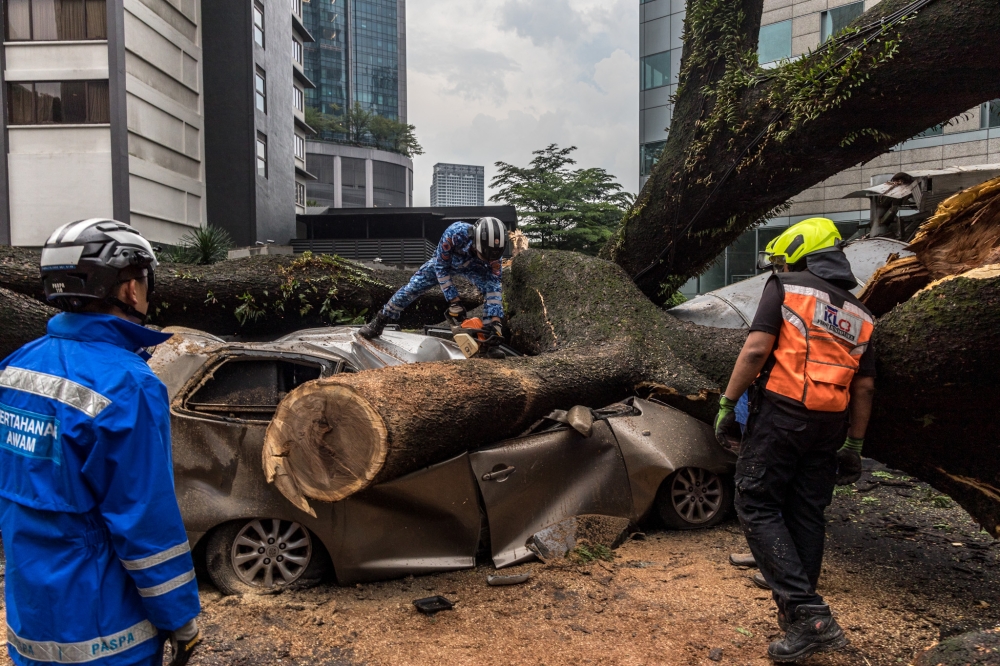MAY 16 ― The recent death of a person struck by a falling tree has sparked outrage, but Dewan Bandaraya Kuala Lumpur's (DBKL) response by planning mass tree-chopping deserves a critical look. While safety is paramount, resorting to tree removal signals a sort of performative knee-jerk alarmism rather than a well-considered strategy based on data.
DBKL's response to the tragedy feels rash and heavy-handed. Wholesale tree removal disregards the multitude of benefits urban trees provide. Trees act as natural air filters, combating air pollution. They also mitigate the urban heat island effect, thereby lowering temperatures and making the city more livable. Furthermore, a mature tree is an asset to its surrounding community, and should never be taken for granted.
Instead of focusing solely on falling trees, let's talk about a more pressing public safety issue: traffic fatalities. The data clearly shows that Kuala Lumpur's roads pose a greater danger to residents than its trees.

Go to the social media pages of the Malaysian Institute of Road Safery Research (MIROS) and take a look at the road accident and death rate daily. Essentially, getting hit by a car is far more likely to result in death or injury than encountering a falling tree.
You can find reports of road fatalities during the recent Raya holiday season with a quick online search.
The comparative lack of outcry from both the authorities and the public regarding traffic fatalities warrants further examination.
Our reliance on private vehicles contributes to a heightened risk of death and injury for all road users, including pedestrians, cyclists, motorcyclists, and drivers alike. It is crucial to question why these fatalities are simply accepted as an inevitable consequence of car-centric urban planning.
Yes, there's no doubt that we need a better approach to taking care of our urban trees. Investing in proper tree maintenance by professional aborists ― pruning and controlled removal of dead branches ― can significantly reduce the risk of falling debris. Citizens can also be educated on recognising signs of a troubled tree.
However, addressing the issue of unnecessary deaths and injuries requires a broader conversation based on data that encompasses Malaysia's car dependency and overall road safety.
We should be talking about how to make our streets safer. We should be discussing how to implement “road diets” that reallocate road space for wider sidewalks, protected cycling lanes, and improved public transportation options. We need a national conversation about expanding rail travel to reduce highway deaths, especially during holidays.
Only through such serious discussions and actions, we can reduce car dependency and improve road safety and prevent needless deaths and injuries in Malaysia.
Moving forward, the government should prioritise data-driven decision-making and a holistic approach to public safety. This will enable them to effectively reduce fatalities and injuries for all Malaysians. There is a clear path forward that allows us to ensure the safety of our citizens while simultaneously preserving the valuable natural heritage of our cities.
* This is the personal opinion of the writer and does not necessarily represent the views of Malay Mail.





















